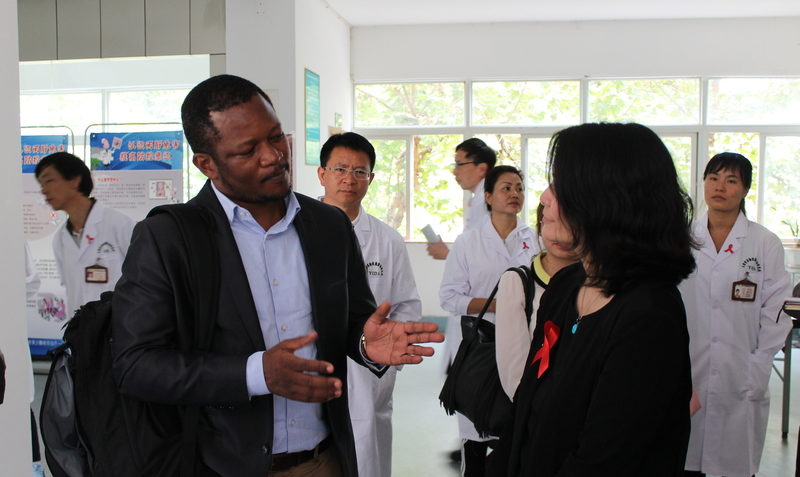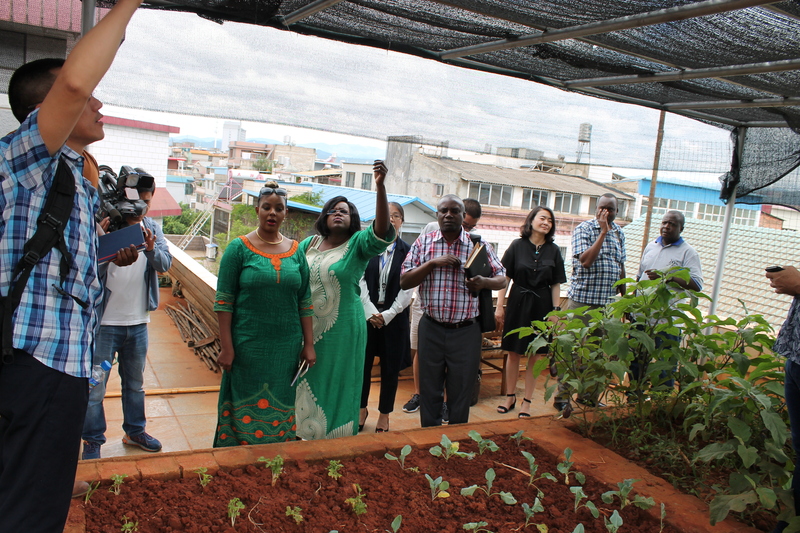Promoting harm reduction in China by sharing good practice abroad
 © Charlie Baran for Frontline AIDS
© Charlie Baran for Frontline AIDS
Innovative techniques for domestic advocacy key to development of community-based harm reduction for people who use drugs in China.
AIDS Care China’s innovative techniques for domestic advocacy have been instrumental in the development and expansion of community-based harm reduction programmes for people who use drugs in China.
In June, the Chinese government hosted a delegation of East African government officials and HIV and drug treatment workers to share their experience of innovative harm reduction techniques being implemented in Yunnan province. The African delegates observed and learned about local approaches to needle and syringe exchange, community-based drug treatment, and take-home methadone treatment.
Dr. Cassian Nyandindi from Tanzania, and Tina Luo, Execitive Director of AIDS Care China, discuss Yunnan’s methadone treatment programme in a methadone clinic in Kunming.
The take-home methadone programme was initiated by AIDS Care China (ACC, the Alliance Linking Organisation in China), which has advocated effectively to gain government support to scale up this model and for implementing other innovative harm reduction interventions.
Tina Luo, Executive Director of ACC, described her organisation’s approach to advocacy in China, and how it differs from the approach of its counterparts in other countries: “What AIDS Care China does is very innovative. Our approach is to lead from behind, not with protests or direct action, but rather work with the government.”
ACC partners with communities and government to develop and pilot innovative methods that are responsive to both the programmatic needs and political imperatives at play in China. They then use the results from the pilots to gain buy-in from municipal, provincial, and national officials. Once the higher echelons of the government are convinced of the interventions’ effectiveness, they are scaled up, funding is allocated, and policies are changed. The good practices are then promoted within China and abroad to consolidate support throughout the government and in communities.
The case of take-home methadone is an example of the success of this approach, as is the implementation of opioid substitution therapy (OST), which is now a government priority intervention for people who use drugs. In China, what the national government determines as a priority invariably becomes a priority for all lower levels of government as well.

The African delegation’s visit was therefore both an outcome of domestic advocacy and a means to further shore up support in China for these programmes. The visit created an opportunity for positive media coverage of the programmes, which solidified their legitimacy in the eyes of many people involved in policy formation and implementation in China. Because they are now being shared with an international audience, they carry more weight at home too.
Tina reflected: “We are very happy to see these programmes being promoted internally and abroad as good practice. It gives us hope that more people who use drugs, or who benefit from methadone treatment flexibilities, will have access to the life-changing and life-saving services they need. We know this would not be possible without the leadership of national, provincial, and local government. I, too, am proud to see China taking a leadership role on this issue and look forward to more exchanges with our colleagues in other countries, and to further strengthening China’s response to HIV at home.”
Written by Charlie Baran
This article was written as the International HIV/AIDS Alliance, before we changed our name to Frontline AIDS.
Tags
ChinaHarm reduction


